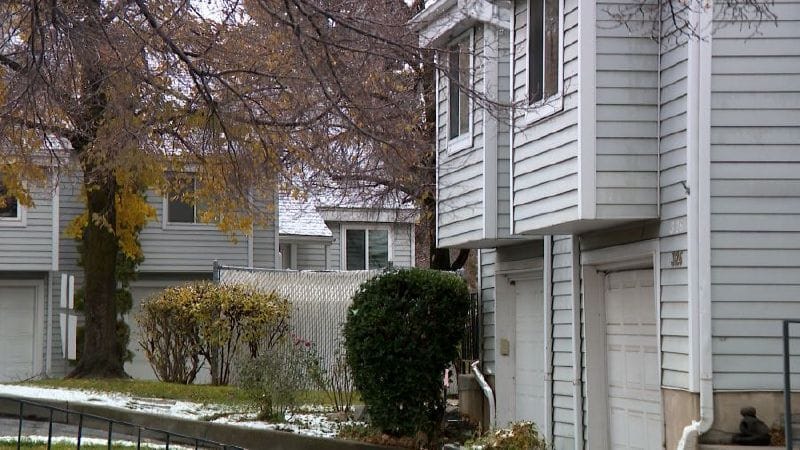- HOA Leaders' Brief
- Posts
- Collaborative Decision-Making Platforms
Collaborative Decision-Making Platforms
Good morning!
This week, I balanced prepping for Thanksgiving with diving into our Q4 projects. It’s a season of gratitude and hustle, and I’m proud of the strides we’re making as a team to close out the year strong. As we move through these final weeks, I’m excited to share updates and celebrate the progress we’ve made together.
— Lucas Robinson, Founder & CEO at BudgetMailboxes.com
🎯 This Week’s Strategy:
Collaborative Decision-Making Platforms
🌐 Boardroom Brief:
Rising HOA Fees in Bountiful Spark Resident Concerns
Strategy
🎯 Collaborative Decision-Making Platforms
For this week’s edition of the HOA Leaders’ Brief, we’re spotlighting a strategy that can transform how communities make decisions and engage their members: collaborative decision-making platforms. These digital tools streamline the decision-making process by fostering inclusivity, transparency, and efficiency key ingredients for successful HOA management.
What Are Collaborative Decision-Making Platforms?
Collaborative decision-making platforms are software solutions designed to facilitate communication, voting, and project tracking in a centralized space. They allow HOA boards and residents to participate in discussions, provide feedback, and make informed decisions collectively. By digitizing these processes, these platforms ensure that everyone’s voice is heard, decisions are documented, and follow-ups are easy to manage.
How Collaborative Decision-Making Benefits HOAs
Enhanced Engagement: Encourages residents to participate in discussions, creating a sense of ownership and involvement.
Improved Transparency: Centralized documentation of decisions fosters trust within the community.
Operational Efficiency: Reduces reliance on time-consuming in-person meetings, saving time for both board members and residents.
Cost Savings: Streamlines processes, reducing administrative overhead and paper-based communication costs.
Steps to Implement Collaborative Decision-Making Platforms
Choose the Right Platform: Research and select a platform that suits your HOA’s size and needs. Popular options include platforms like TownSq, Condo Control, HOA Works or even simple tools like Google Workspace for smaller communities.
Introduce the Platform: Host an informational session or send out an introductory guide to familiarize residents with the platform’s features, such as discussion forums, polls, and project tracking.
Set Clear Guidelines: Establish rules for using the platform, such as discussion etiquette, response times, and voting procedures, to ensure productive engagement.
Integrate Decision Processes: Move common HOA tasks like voting on community projects, discussing rule changes, or collecting feedback onto the platform. Use features like notifications and reminders to keep everyone informed and on schedule.
Encourage Resident Participation: Actively involve residents by soliciting their input on community decisions, hosting virtual Q&A sessions, and highlighting how their feedback drives outcomes.
Pro Tip: Regularly Review Usage
Monitor how the platform is being used and collect feedback to improve adoption and functionality. Adjust the platform settings or introduce training sessions to address any barriers residents or board members might face.
By implementing collaborative decision-making platforms, HOAs can foster stronger community connections and make more informed, inclusive decisions that reflect the collective needs and priorities of their residents.
The Real Estate Professional’s Secret Weapon - Land id™
Discover extensive nationwide private parcel data, create & showcase powerful, shareable, interactive maps of any property: Fast, Easy and Mobile, with Land id™.
With the brand new streamlined Property Info Cards, Land id™ brings industry leading data and contextual layers to the forefront in a single tap or swipe.
Boardroom Brief
Rising HOA Fees in Bountiful Spark Resident Concerns

In Bountiful’s Orchard Corners Condominiums, residents are facing a sharp HOA fee increase, driven by skyrocketing insurance costs that have surged from $17,000 to $108,000. Current monthly fees of $385 may more than double to over $800, leaving residents struggling to balance these unexpected costs with their personal finances. While the HOA board has proposed a 17% increase paired with a $3,000 lump sum payment as an alternative, many homeowners find themselves stuck between difficult options. This situation highlights the challenges that can arise from rising operational costs in HOA-managed communities, prompting discussions about how associations can address budgetary needs while considering the financial impact on residents.
Game
🎉 Fun Finale: Play & Poll
How many sides does a dodecagon have?(Tap on your answer) |
Learn how to make AI work for you
AI won’t take your job, but a person using AI might. That’s why 1,000,000+ professionals read The Rundown AI – the free newsletter that keeps you updated on the latest AI news and teaches you how to use it in just 5 minutes a day.


